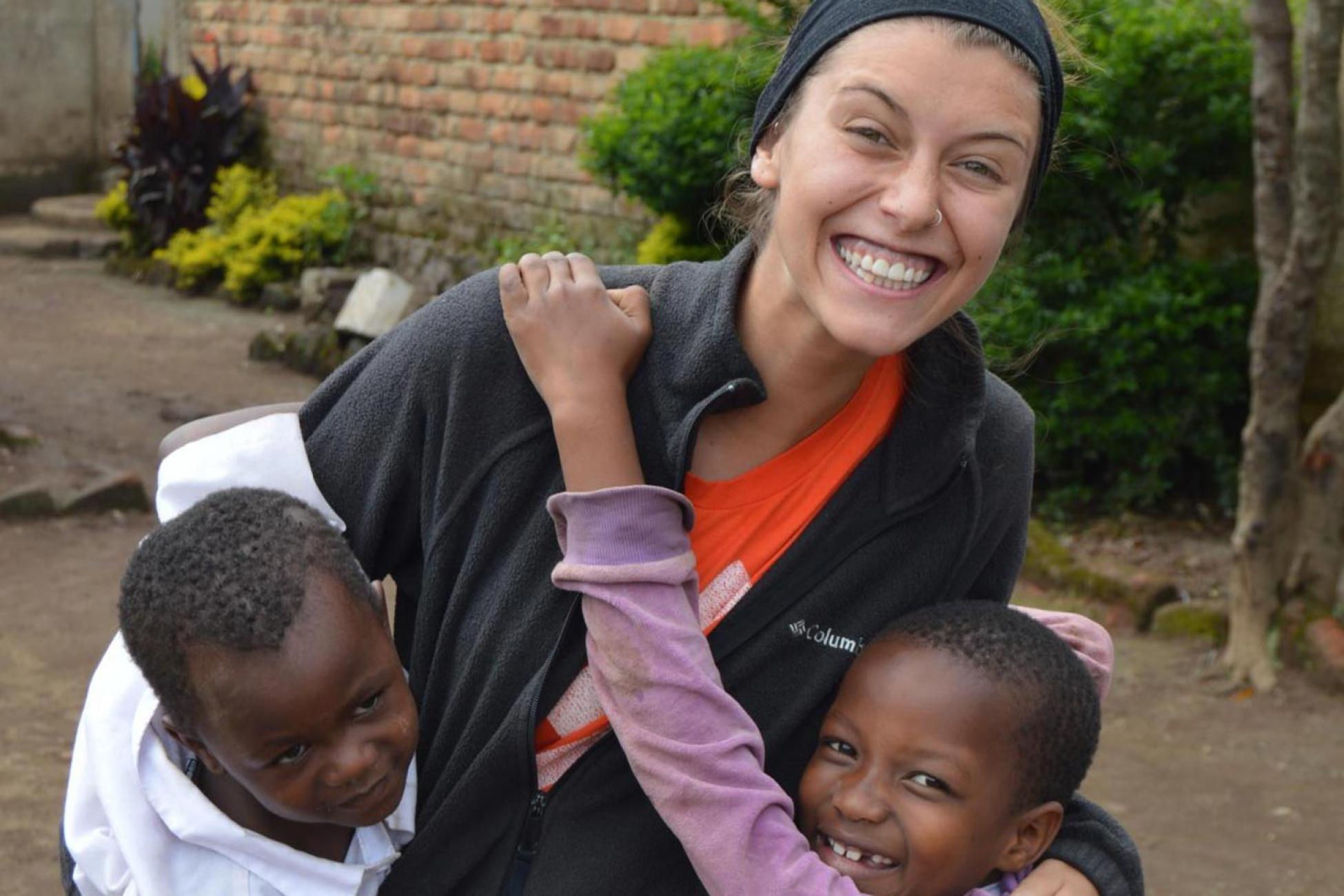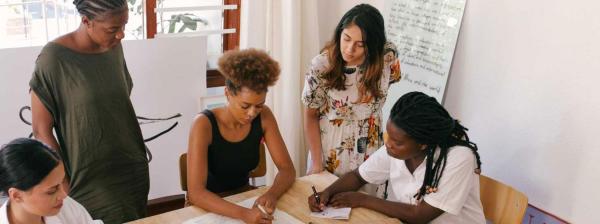The shade of the deep blue-green waters in Lake Kivu, the pipin' hot cups of coffee, the (surprisingly) joyful song and dance of the teenage rape victims we worked alongside, the fresh passion fruit.
While all of these moments were real, Rwanda didn't solely impart on me some nice memories, a few photos and a new stamp in my passport. It gave me a lot to chew on. A lot. My opinions of development work, women's rights, the goodness of governments, and the actual benefits of short-term volunteering were confronted each and every day.
Here were a few of my unexpected challenges of volunteering in Rwanda:
1. My brief time commitment.
Of my three-month grand volunteer adventure in East Africa, I only planned for spending 10 days in Rwanda. I did not fully anticipate how the short time period would negatively effect my overall experience as a visitor there. While I fully enjoyed my week-long volunteer work and learned a lot through the experience, I still left dissatisfied with the time and energy I devoted to this beautiful, hilly country.
It was psychologically easier to not make the effort to study KinyaRwandan, the local language. I understood the country from a very narrow perspective. I made friends, but certainly less, and certainly with less depth. I missed out on so much of the beauty and variety of Rwanda, solely because I didn't have time.
A word of caution to future travellers; if you are considering short-term volunteer work abroad (such as two weeks or less), I recommend going to a country you've been to before.
2. I left with extremely limited understanding.
Trying to understand the underlying, ongoing societal issues that have culminated in the need for volunteers in the first place is near impossible in a week. I went into the experience assuming it would be a sufficient amount of time to gain and contribute something of value, but was unpleasantly surprised at how I failed in both regards.
While it piqued my curiosity and certainly inspired me to keep learning about Rwanda and questioning my stereotypes and generalizations of the area, my observations are still pretty shallow and undeveloped. I'd be lying to myself if I said otherwise.
3. Development is complicated.
I was tickled pink to be welcomed by Kigali's paved roads, sidewalks, street lamps and coffee. These small examples indicated a surge of something larger at work; Western-imposed "progress." While I feel skeptical of the actual benefits of international aid, I couldn't help but notice how much I enjoyed reaping the benefits myself (in other words, how quickly I switched from dining on ugali and beans to a fresher Mediterranean salad).
I questioned my opinions and understandings of development work while witnessing a culture experiencing the fruits of it. Are they sweet or sour? Do these African people actually want paved roads and seat belts? Hard to say. I'll get back to you on that.
4. The legacy of the genocide.
Prior to my entering in Rwanda, I made sure to familiarize myself with its recent history and political situation. The genocide between the Hutus and the Tutsis in the early 1990s was a large societal issue I was trying to tackle, especially
It was wild interacting with the folks older than 25 around Rwanda. Are you Hutu? Are you Tutsi? What did you see? Who did you lose? I found myself insatiably curious about learning the details of the horrors from those around me rather than the government-sponsored Memorial Museum.
Locals and long-term expats told me there is an obvious lack of trust amongst people in the country, even despite the efforts to rid themselves of ethnic identities and come together as a nation. Genocides don't just go away, it turns out. It is living history and still a very real part of Rwandan's lives—even if we don't talk about it.
5. Inappropriate touching from males.
Travelling as a culturally sensitive individual is due cause for observing local culture and emulating their dress, behaviour and style. This rings even more true as a woman, who is admittedly tempted to don her shorts and tank tops in the hot Rwandan sun, instead of a full on kanga and conservative shirt.
Because of my commitment to modest dress, I did not expect to deal with public groping from locals while in Rwanda. Whether we like it or not, we women have to be vigilant and cautious, always, even when we cover up. It is frustrating and seems unfair most times, but a good reminder nonetheless. Be safe out there, ladies!
Overall, volunteering in Rwanda was a wonderful experience. Since the feeling of regret is for the birds, I can only commit to going deeper in the future and continue drawing from my experience here to continue improving as a traveller and volunteer in the coming years.





